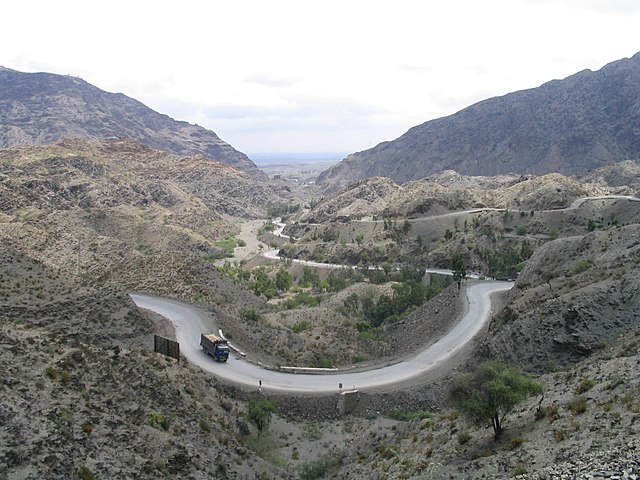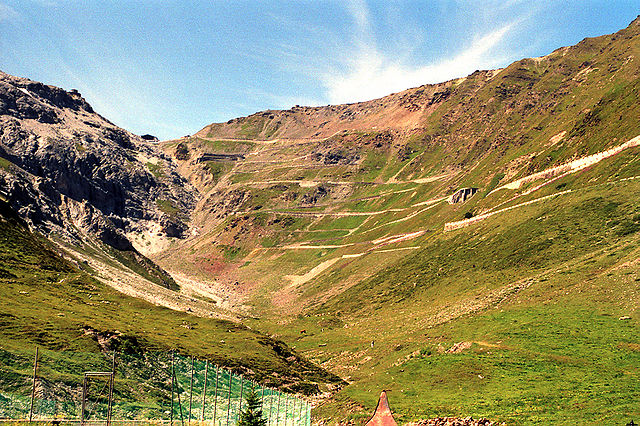The Khyber Pass is a mountain pass in the Khyber Pakhtunkhwa province of Pakistan, on the border with the Nangarhar Province of Afghanistan. It connects the town of Landi Kotal to the Valley of Peshawar at Jamrud by traversing part of the White Mountains. Since it was part of the ancient Silk Road, it has been a vital trade route between Central Asia and the Indian subcontinent and a strategic military choke point for various states that controlled it. The Khyber Pass is considered one of the most famous mountain passes in the world.
The pass connects Landi Kotal to the Valley of Peshawar.
The Khyber Pass with the fortress of Ali Masjid in 1848
Afghan chiefs and a British political posed at Jamrud Fort at the mouth of the Khyber Pass in 1878
Railways through the impregnable Khyber Pass,1939. Digitized by the Panjab Digital Library.
A mountain pass is a navigable route through a mountain range or over a ridge. Since mountain ranges can present formidable barriers to travel, passes have played a key role in trade, war, and both human and animal migration throughout history. At lower elevations it may be called a hill pass. A mountain pass is typically formed between two volcanic peaks or created by erosion from water or wind.
Sani Pass in Mokhotlong, Lesotho
Idealised mountain pass represented as the green line; the saddle point is in red.
Col between Kensgriff and Yarlsidine in the Howgill Fells, England
Stelvio Pass in the Alps (Italy)








